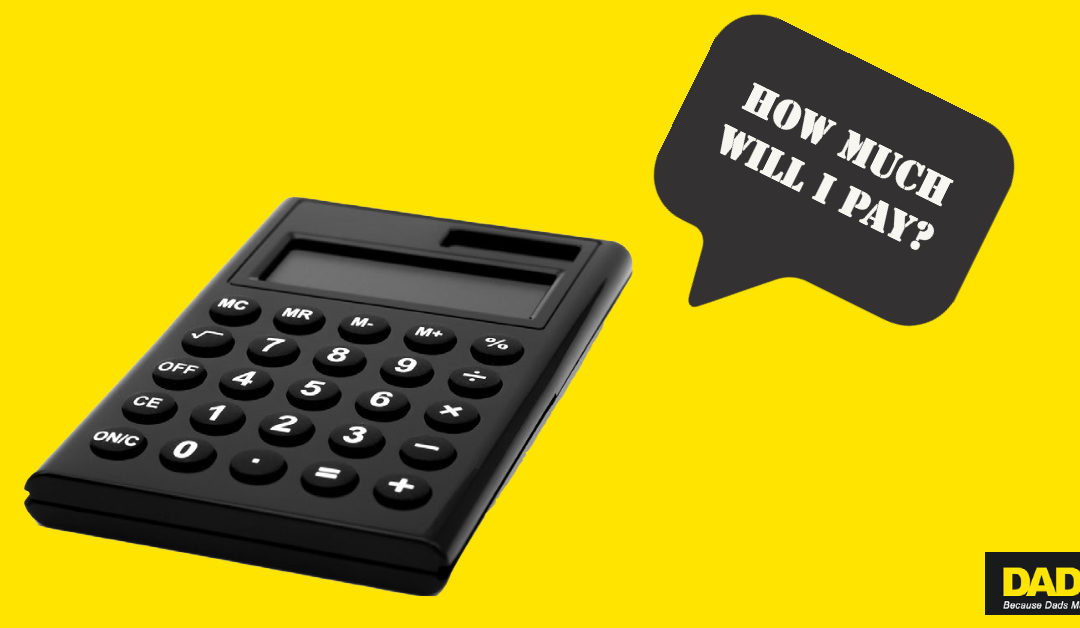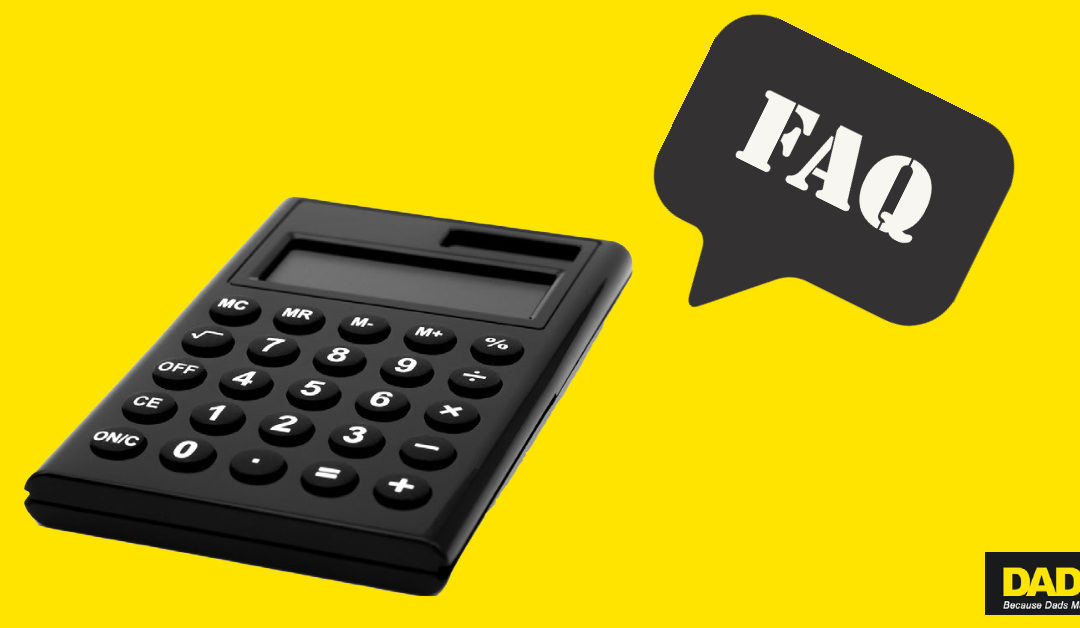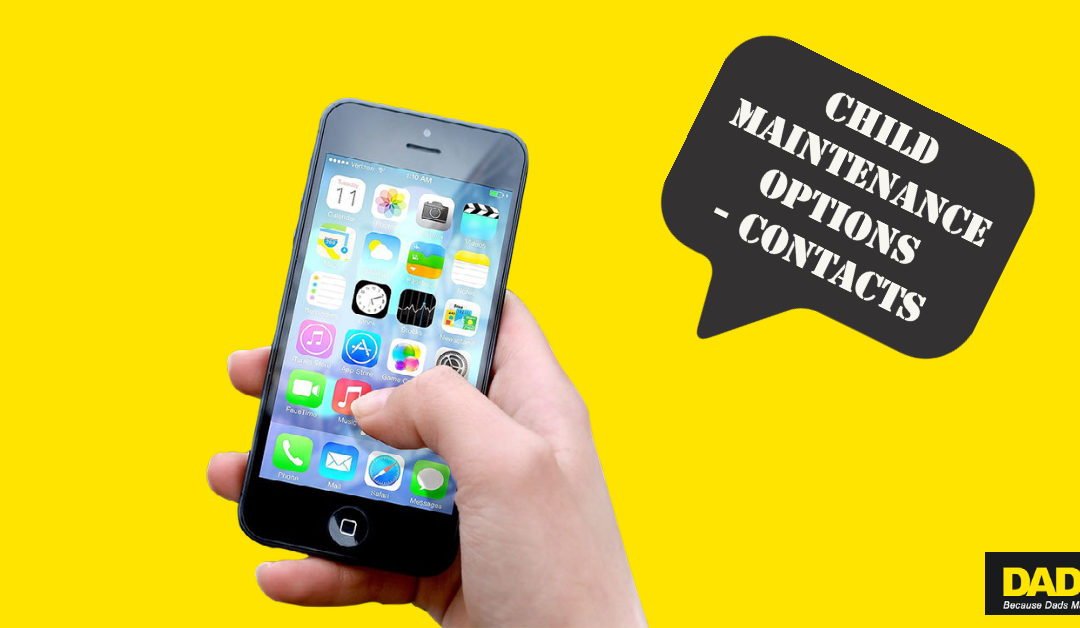DAD.info looks at types of maintenance agreements for you to talk through and discuss…

Family-based arrangements
Parents don’t have to use the Child Support Agency or Child Maintenance Service to arrange child maintenance. They are free to choose the best child maintenance arrangement to suit their family’s needs. In most cases, this will be a family-based arrangement. More than half a million British families now have an arrangement in place that they’ve set up between themselves.
Family-based arrangements are agreements between both parents about who will provide what for a child. They don’t have to be just about exchanging money – the paying parent could, for example, agree to provide school uniforms.
The main benefits of family-based arrangements are that they’re quick and easy to set up. They’re also completely private, meaning that no-one else needs to get involved in a family’s arrangements. Research has shown that separated parents are twice as likely to be happy with a family-based arrangement as they are with a statutory arrangement.
If separated parents can’t make a family-based arrangement work, or if they’ve tried to set one up and it hasn’t worked, they do have other options.
Statutory arrangements (through the Child Maintenance Service)
Direct Pay
Direct Pay (known as Maintenance Direct in Child Support Agency arrangements) is a payment option offered by the Child Maintenance Service that enables parents to keep control of making and receiving payments. The statutory service works out the payment amounts for parents but won’t get involved in other areas, like collecting the payments and enforcement, unless a parent asks them to. If a parent wants the Child Maintenance Service to get involved in enforcing payments, then the parent needs to move to a Collect & Pay arrangement.
Direct Pay is often a good option for parents who have trouble agreeing or talking about how much child maintenance payments should be.
Collect & Pay
Collect & Pay (known as ‘the calculation and collection service’ in Child Support Agency cases) is a calculation, collection, payment and enforcement service for parents who can’t make a family-based arrangement work. If a parent applies to the Child Support Agency or Child Maintenance Service for this, they will gather information from both parents and use it to work out how much child maintenance the parent without the main day-to-day care of the child will need to pay to the other parent. If payments aren’t made on time, a range of enforcement actions can be taken to collect them.
From Spring 2014 the Government is going to introduce fees and charges for using the Child Maintenance Service. Further details on this are here .
Consent Orders and Minutes of Agreement
Consent orders
In England and Wales, a consent order is an order made by a court that makes an agreement between two parties legally binding. For child maintenance, courts can make a consent order which says that the parent without the main day-to-day care of the child must keep to the child maintenance payments they have agreed, either collaboratively between themselves or through solicitors.
It is usually only the best option if the parents are going to court for other reasons (like arranging a divorce or dividing property or other assets), as putting a consent order in place does involve legal costs.
Minutes of Agreement
In Scotland, parents can register a Minute of Agreement in the Books of Council and Session held by Registers of Scotland. After they’ve made their family-based arrangement – with a solicitor’s help, if needed – parents can make it a contract called a Minute of Agreement. They can then register this for preservation and execution to make it legally binding and enforceable.
It’s important to note that parents cannot set up a statutory child maintenance arrangement within 12 months of setting up a consent order or Minute of Agreement, but they can do so after this period.
Child Maintenance and benefits
Parents who claim benefits are free to choose the child maintenance arrangement that best suits their own particular circumstances, whether or not they are on benefits.
For receiving parents, any child maintenance received does not affect benefit entitlement. For paying parents, any benefits they receive are included as income by the Child Support Agency or Child Maintenance Service when calculating their child maintenance payments.
A small number of local councils in England count child maintenance as income when they work out whether someone is entitled to have their council tax payments reduced. Parents should speak to their council if they are making an application to their Council Tax Reduction Scheme or already receive a reduction in their Council Tax under a Council Tax Reduction Scheme.








